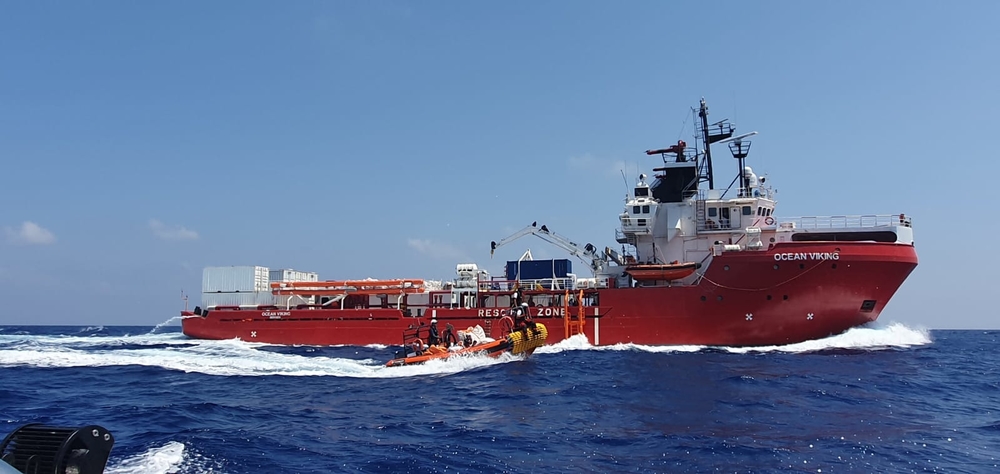Two weeks ago, Doctors Without Borders (MSF) resumed its Search and Rescue (SAR) operations. In partnership with SOS MEDITERRANEE, the new ship Ocean Viking sailed to the Central Mediterranean Sea at the end of July.
Over the weekend the Ocean Viking performed three rescues in three days in the SAR area and has now a total of 251 people rescued onboard – 74 are children under 18 years old.
MSF is responding to the need for lifesaving operations in the central Mediterranean. While there is extremely limited dedicated search and rescue presence in the Central Mediterranean, people’s chances of dying while attempting the crossing has only increased – currently nearly double in the first half the year, compared with last year for latest figures.
MSF said a lack of SAR does not deter people from risking their lives but has only made the risk more extreme. “MSF will not remain silent about such policy-induced suffering and we will continue to assist refugees, migrants and asylum seekers. We are returning to sea because European governments are failing to fulfil their basic legal obligations to protect vulnerable people.”
Testimonies / Quotes from MSF Staff
“We have seen marks on their bodies, bruises and signs around the ankles and wrists, that are clearly indications they have been wearing handcuffs. It is very sad; these scars are not only on their bodies, but also on their souls.” – Luca Pigozzi, Medical Doctor on board Ocean Viking
“What we saw from the first boat and what people reported to us and what we saw in our clinic is that they had been exposed to the heat and not having drinking water for about two days. This first group were clearly dehydrated but most were able to recover from this within 24 hours. From the second rescue we could clearly see that they had been exposed to the heat and not having drinking water for longer, it was about three days in the end that they had been out at sea. They felt much weaker, you could see that they had difficulty in walking for example, they couldn’t keep their balance, we had a few that almost collapsed and we just had to take them down, and make them lie down at the beginning and then we choose a few people that were stronger from the first group that were sitting next to them supporting them, making sure that they drink, to rehydrate. We saw the first that were recovering after six hours and now it is almost 24 hours, they seem to be much better now, they are much stronger but some of them still look quite tired” – Stefanie, MSF Medical Focal Point on board Ocean Viking
“Every single person I’ve spoken to so far has experienced either arbitrary imprisonment, extortion, being forced to work in slavery like conditions or torture. I’ve seen the scars from severe beatings. It’s clear from looking into their eyes, how much people have been through. They told me they were ready to die in the sea, rather than live another day suffering in Libya.” – Yuka Crickmar, Humanitarian Affairs Officer on board Ocean Viking
| Key statistics:
In the first six months of 2019, people continued to flee Libya across the Central Mediterranean with 8,437 people attempting the crossing. At least 426 of them lost their lives doing so.
While 1,296 people have been evacuated or resettled out of Libya, more than double – or 3,686 people – have been intercepted and forcibly returned to Libya by the EU supported Libyan Coast Guard. Since the first political stand-off at sea with the Aquarius in June 2018, there have 21 stand-offs over the space of just one year affecting 2,601 vulnerable men, women and children (last update July 9). |
